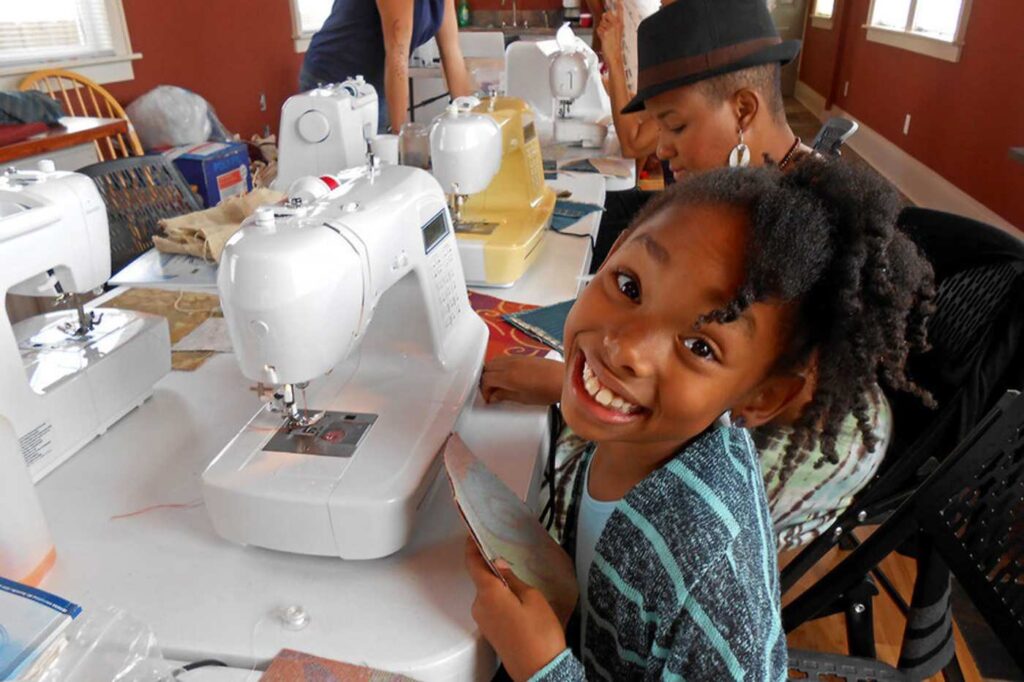
Sewing is a craft that’s been passed down through the ages from mother to daughter and from father to son. Traditionally, it’s also served as one of the few consistent sources of income for women, especially marginalized ones.
Margaret Jankowski learned to sew from her mom. As an adult, rather an avocation than a vocation, it wasn’t something she pursued full-time, but she enjoyed it enough that she taught sewing classes and created clothing for her first child.
In 2004, in the wake of the tsunami that devastated Sri Lanka, the story of a woman whose dream of becoming a tailor was dashed after spending years saving up to buy a sewing machine struck a chord that resonated with Jankowski.
“I could easily make a living without my sewing machine,” Jankowski told the Christian Science Monitor. “That wasn’t true of this woman.”
Inspired, Jankowski made a spur-of-the-moment decision to find a way to get some machines to Sri Lanka. Her original thought was to simply get hold of a few used machines and send them on, but when she outlined her plans on the local news, the project took on a life of its own and donated machines started rolling in.
In 2005 the first shipment of 25 boxes containing toys, medical supplies, fabric, and a sewing machine were distributed between five orphanages in India and Sri Lanka. In addition to creating clothing, the machines were used as learning tools to teach the children an occupation they could put to good use later in life.
Since then, The Sewing Machine Project has re-homed 3,350 sewing machines to recipients facing a variety of socio-economic challenges resulting from a variety of causes from war conflicts to natural disasters to generational poverty.
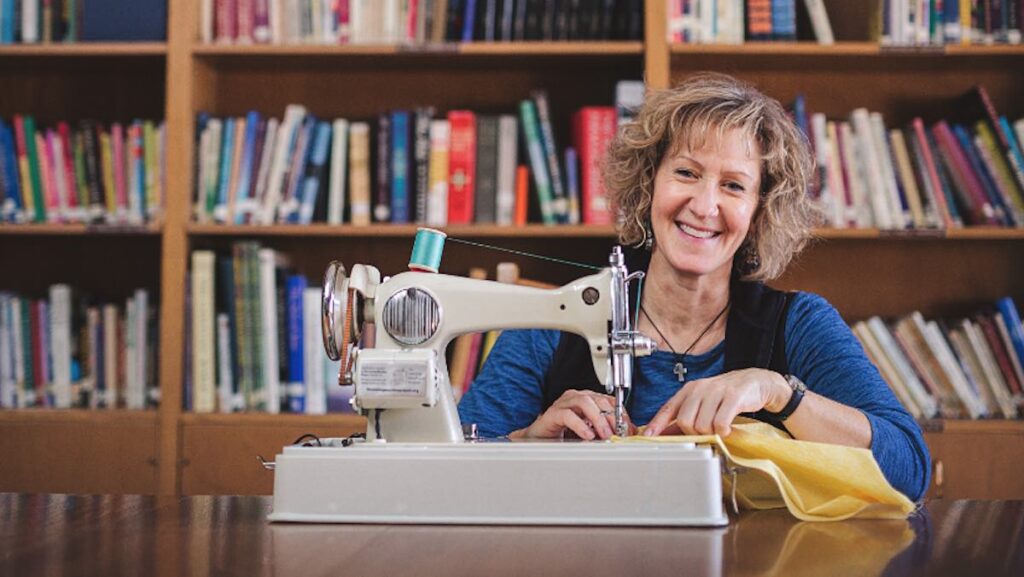
After Hurricane Katrina, hundreds of machines were delivered to New Orleans’ Mardi Gras costume makers. They’ve also found their way to Guatemala, Kosovo, and closer to home at immigrant training facilities and halfway houses for women trying to overcome drug addiction.
As valuable as learning to sew can be as a source of livelihood, whether you’re sewing to make something new or repair something old, creating something beautiful or something strictly utilitarian, being able to say, “I made this!” is an affirmation of self-esteem that can be life-changing.
Nowhere is that more true than in a pilot program in Rankin County, Mississippi, that the Sewing Machine Project serves.
Inmates at the Central Mississippi Correctional Facility began turning out backpacks filled with reusable menstrual pads and undergarments for girls in countries who often found themselves unable to attend school due to lack of sanitary items.
Since its inception, director Renee Smith has seen a definite shift in the participating inmates’ attitudes. “They know they’re making a difference in the life of someone else,” she told CSM. “To me that’s huge.”
The Sewing Machine Project, which is based in Madison, Wisconsin, accepts sewing machines of every brand. The only caveat is they must be in working condition. The Brother Sewing Machine company recently donated 500 machines, 25 of which went to Zaman International—a Detroit area nonprofit serving serving marginalized women and children, many of whom are immigrants and refugees.
MORE: 13-Year-old Has Been Sewing Hundreds of Bowties to Help Shelter Pets Get Adopted
Jankowski currently fields 10 to 15 emails every week from international groups looking to receive sewing machines. Having started the program almost on a whim, she initially had no idea just huge the demand would be. She says the funds aren’t available to supply everyone who asks at the moment, but she hopes in future the program will be able to expand to meet the growing need.
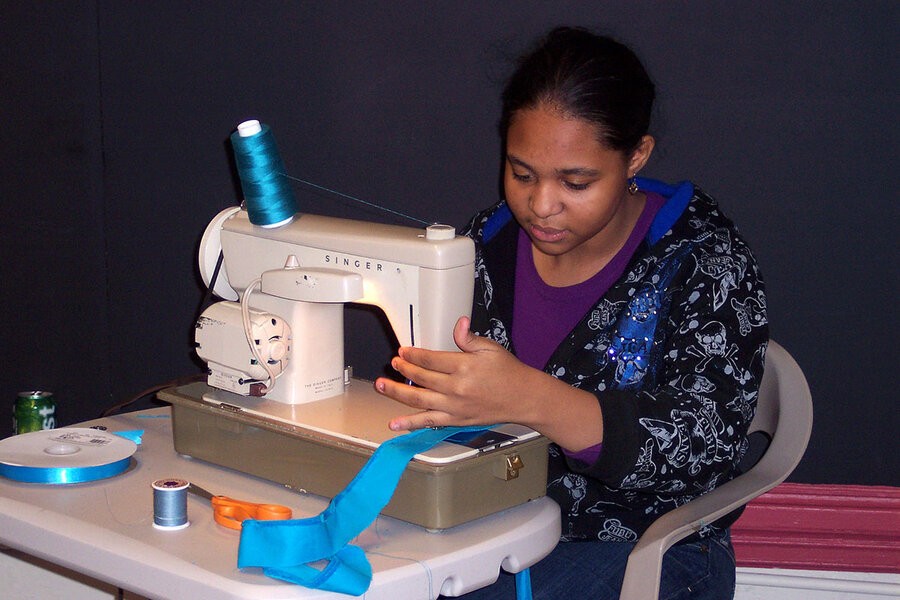
As with many charitable programs, the parameters of the COVID-19 pandemic has forced a shift in the way The Sewing Machine Project operates its outreach. But here, Jankowski is especially hopeful.
“One of the many gifts I’ve received in leading The Sewing Machine Project is the opportunity to see not only the need that exists all around us but also the creative ways in which people and organizations work to address that need,” she said in their newsletter.
RELATED: Syrian Refugee Saves Ontario Wedding With Master Sewing Skills
“Resiliency—bending and swaying in the face of challenge—shows up everywhere. We adapt and we look to one another for support. Together—all of us—are working to meet the needs of those who can benefit from the healing power of sewing.”
And while the transition may not be seamless, the Sewing Machine Project plans to continue its mission to make the world a better place, one stitch at a time.
SEW UP the Good News For Friends By Sharing This Story…



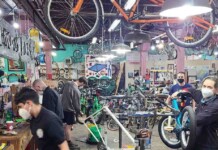

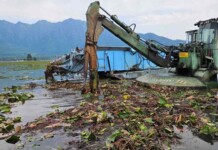














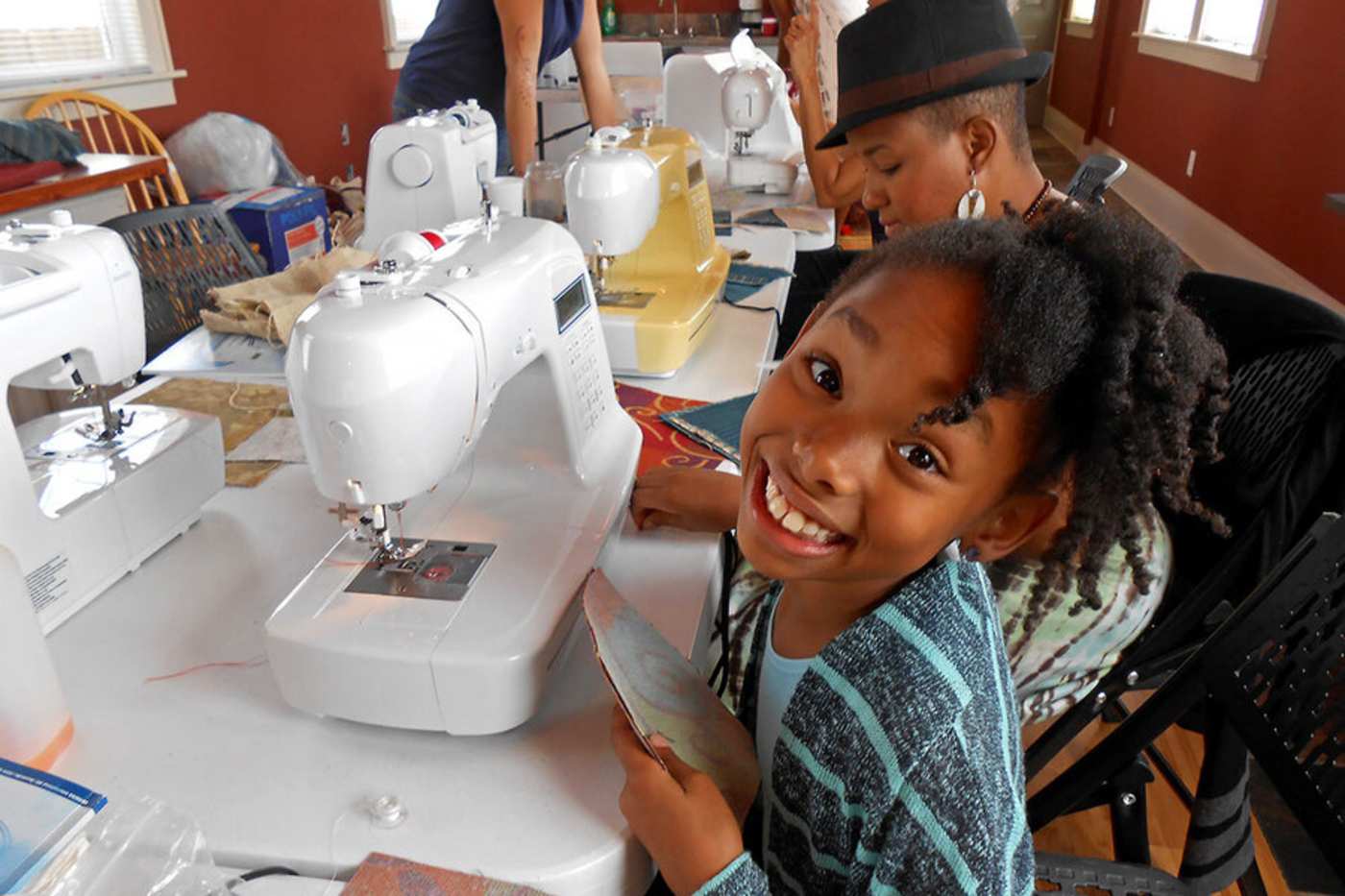
Such a great thing to be doing! What about someone altering clothes too? We have a lack of seamstresses around my city.